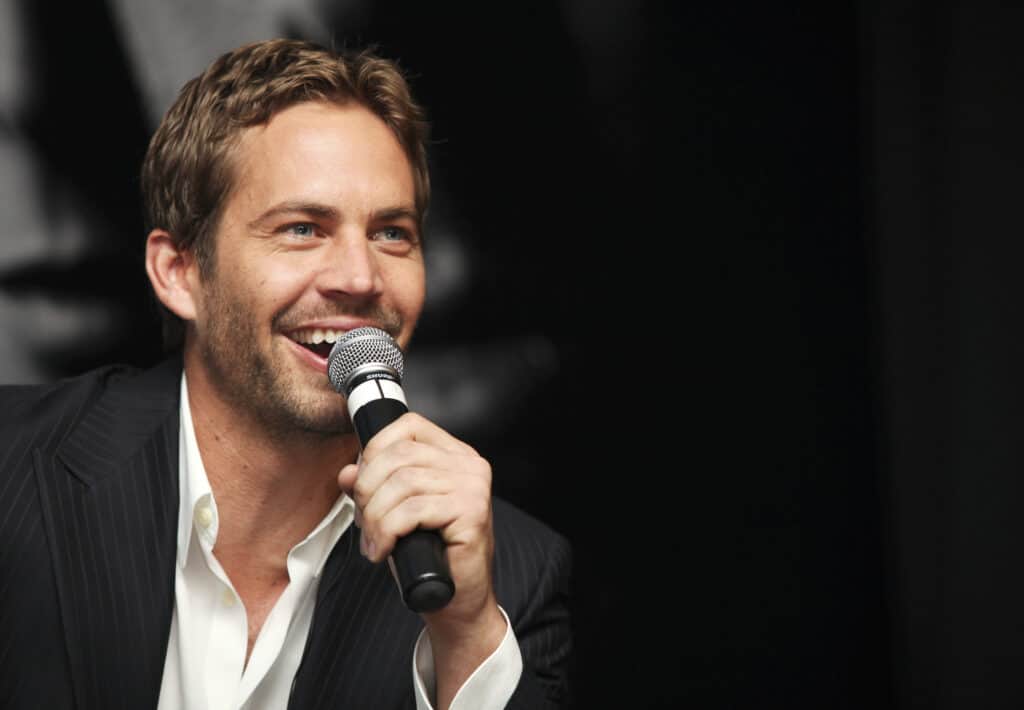On November 30, 2013, “Fast & Furious” franchise star Paul Walker died in a car crash. How did the accident happen and who was driving?
At the time of his death, Paul Walker was the passenger in a 2005 Porsche Carrera GT. The Carrera GT belonged to Roger Rodas, a friend of Walker’s, who was also driving the car. Both men were killed in the crash.

For more on the circumstances surrounding Paul Walker’s death and some of the aftermath, read on.
Paul Walker
Paul Walker began acting professionally as a child in the 1970s and 1980s but achieved fame after appearing in “The Young and the Restless”.
Walker’s breakthrough came in 1999 with performances in “She’s All That” and “Varsity Blues”.
His most iconic role, as Brian O’Conner, debuted in 2001 when he starred alongside Vin Diesel in “The Fast and the Furious”. Walker appeared in the movie and its sequel, “2 Fast 2 Furious” before taking a break from the franchise.
Walker declined the role of Superman in 2006’s “Superman Returns”, with the role going to Brandon Routh. This was allegedly due to concerns about the supposed “Superman curse”, which saw George Reeves shot under suspicious circumstances and Christopher Reeve paralyzed in a horseriding accident.
After a number of disappointing box office performances in movies such as “Into the Blue” and “Timeline”, Walker was eventually convinced to return to the “Fast & Furious” franchise, appearing in “Fast Five” and “Fast & Furious 6”.
Car Crash
Paul Walker and his friend Roger Rodas left a charity event on the afternoon of November 30, 2013. They were in Rodas’ 2005 Porsche Carrera GT, with Rodas driving and Walker in the passenger seat.
The car, which was in a 45mph speed zone in Santa Clarita, California, was later found to have been moving at somewhere between 80mph and 93mph. Its tires were also found to have been worn down and in need of replacement.
The investigation determined that Rodas lost control of the vehicle, which spun out of control and struck a concrete lamp post, then crashed into two trees. The car caught fire and both Rodas and Walker were killed, with the investigation stating that both men were likely dead before being affected by the fire.
Neither man was inebriated and there was no evidence of the pair being involved in a race with another car, a rumor that quickly surfaced due to Walker’s role in the “Fast & Furious” films.
It is believed that the speed of the car, its worn-down tires, and the Carrera GT’s notoriously sensitive handling were the probable cause of the crash.
Walker had been in the process of appearing in “Furious 7” at the time of his death and Universal immediately halted the production of the movie. The studio spoke with Walker’s family to determine whether or not to continue with production.
Aftermath
It was ultimately decided that “Furious 7” should be completed with Walker’s role left intact. The film used footage that Walker had already recorded, as well as having his brothers Caleb and Cody serve as stand-ins for certain scenes.
By working with Peter Jackson’s Weta Digital special effects house, a digital likeness of Walker was superimposed onto his brothers. The film ends by writing off Walker’s character, Brian O’Conner, and was dedicated to Walker’s memory.
Following Walker’s death, both his father and daughter filed wrongful death claims, Walker’s father demanded a “proportionate share” of money from Rodas’ estate, generated by cars that Walker and Rodas had owned together.
Walker’s daughter filed a lawsuit against Porsche, citing the disproportionately high number of accidents that the Carrera GT had been involved in. Her legal representation also stated that Walker had been unable to escape the car due to the difficulty in removing its seatbelt.
The Carrera GT was originally created with the intention of being a racing car and was later adapted for road use, with a top speed of more than 200mph and very limited driving assistance.
Porsche responded by saying that Rodas’ car had been modified from its stock model and that Rodas and Walker had been speeding at the time of their deaths, meaning Porsche had no responsibility.
A judge later determined that, even with added safety measures such as a roll cage, the speed of the vehicle meant neither man would have survived the crash, thus Porsche was not responsible.
Both Walker’s father and daughter reached out-of-court settlements with Porsche.